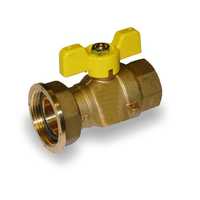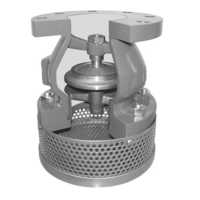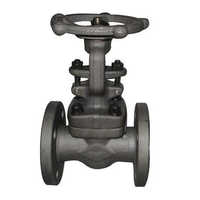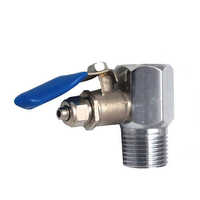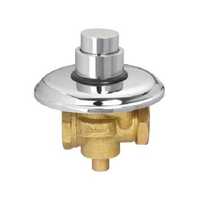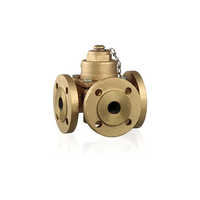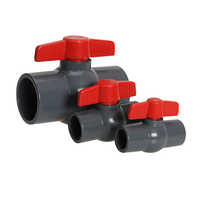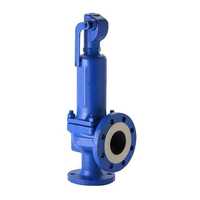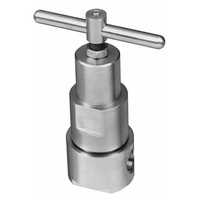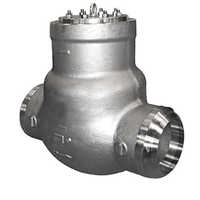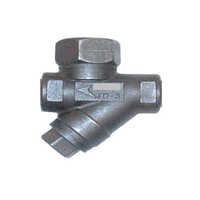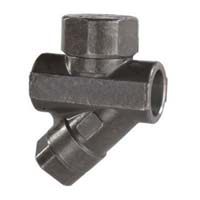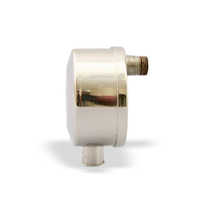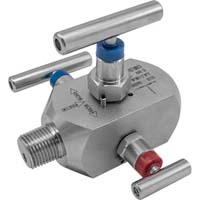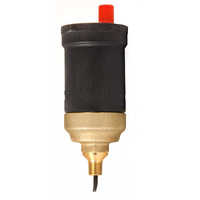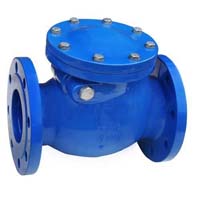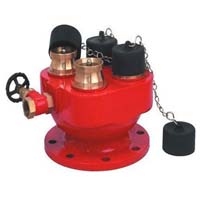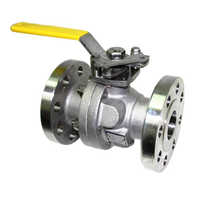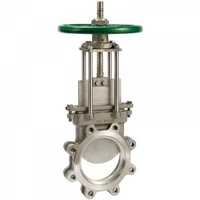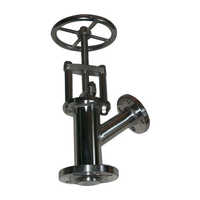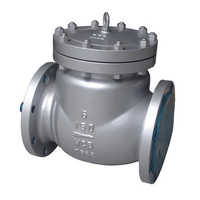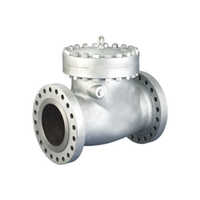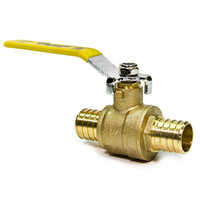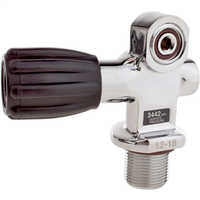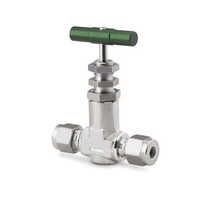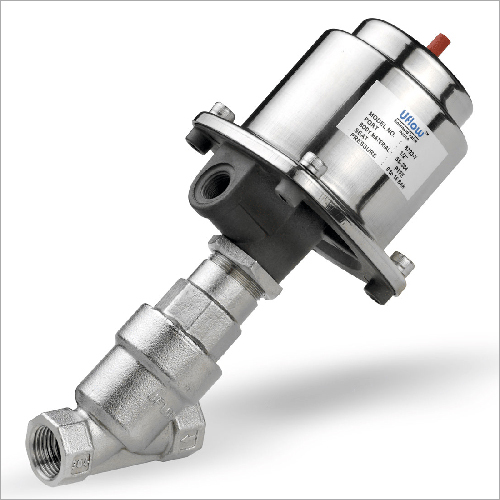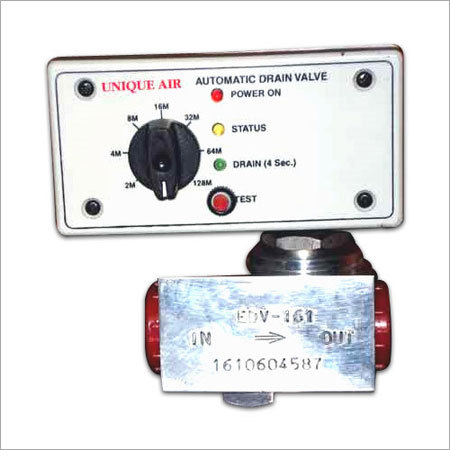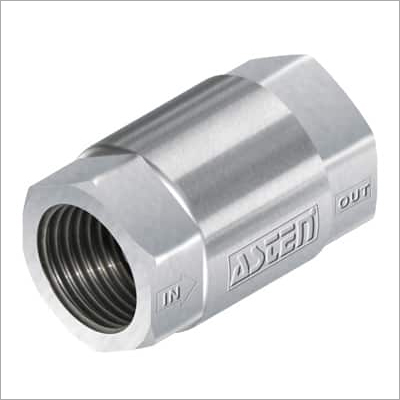Industrial Valves
(5511 products)
Top Industrial Valves Categories
Explore More Categories
Made in India
Multi Color Industrial Valves
MOQ- 50 Piece/Pieces
Usage - Industrial
Product Type - Industrial Valves
Color - Multi color
2 Years
Pandey Brothers Trading Co.
Product Showcase
2/2 Way Diaphragm Operated Solenoid Direct Acting Valve (NC)
Price: 3000 INR (Approx.)/Piece
MOQ - 200 Piece/Pieces
Color - Black Golden
Size - 1/2 TO 1
Weight - 0.800 Kilograms (kg)
5 Years
Response Rate: 86.67%
Business Type: Manufacturer | Exporter
UFLOW AUTOMATION
Made in India
Automatic Drain Valve
Price: 2800 INR (Approx.)/Piece
MOQ - 1 Piece/Pieces
14 Years
Business Type: Manufacturer
UNIQUE AIR PRODUCTS
Indian Inquiries Only
Made in India
Non Return Valve Application: Air Water Oilgas
Application - AIR WATER OILGAS
Sealing - Viton
Pressure - High Pressure PSI
8 Years
Business Type: Manufacturer | Exporter
ASTEN CONTROLS LLP
Made in India
Stainless Steel Breather Valve Application: Oil
Price: 5000 INR (Approx.)/Piece
Weight - 10 Kilograms (kg)
Product Type - Stainless Steel Breather valve
Structure - Safety
6 Years
Business Type: Manufacturer | Supplier
ERA TECHNOLOGIES
Made in India
Cream And Black Auto Drain Valves
Price Trend: 20000.00 - 200000.00 INR (Approx.)/Piece
MOQ - 1 Piece/Pieces
Usage - For Receivers, Moisture Separators, Filters
Product Type - Auto Drain Valves
Material - Stainless Steel
15 Years
Business Type: Manufacturer | Exporter
DYNAMIC ENTERPRISES INC.
Made in India
Normex Wafer Check Valve WCVWSV
Price: 4350 INR (Approx.)/, Piece
MOQ - 10 , Piece/Pieces
9 Years
Business Type: Manufacturer | Distributor
UNIQUE INDUSTRIALS
Verified Exporter
( Accepts only Foreign Inquiry)
Made in India
Monel Valves
16 Years
Business Type: Manufacturer | Distributor
GOVIND METAL CO.
Made in India
Angled Service Valve with Long Service Life
16 Years
Business Type: Manufacturer | Distributor
WAVIN INDUSTRIES LIMITED
Indian Inquiries Only
Made in India
Dual Tunnel Diverter Valve, Pressure: Medium Pressure
2 Years
Business Type: Manufacturer | Exporter
Rathi Engineering Solutions Private Limited
Made in India
HydroPneu PRV 50MM
Price: 6500 INR (Approx.)/Piece
MOQ - 20 Piece/Pieces
Size - 50 mm
Usage - Water Application
Product Type - Pressure Reducing Valves
2 Years
Business Type: Exporter | Service Provider
AQUA Products & Services Pvt. Ltd.
Made in India
Rust Proof Mild Steel Vacuum Breather Valve
Price: 7000 INR (Approx.)/Piece
MOQ - 10 Piece/Pieces
Size - Multiple
Usage - Industrial Use
Product Type - Vacuum Breather Valve
15 Years
Business Type: Manufacturer | Supplier
FIDICON DEVICES INDIA
Made in India
Cast Iron Non Return Valve Power: Manual
Price Trend: 2634-35464 INR (Approx.)/Piece
MOQ - 1 Piece/Pieces
Product Type - Cast Iron Non Return Valve
Color - BLACK
Structure - Other
20 Years
Response Rate: 81.01%
Business Type: Manufacturer | Exporter
AMAN ENGINEERING WORKS
Made in India
MSV-F2 Balancing Valve
2 Years
Business Type: Distributor | Trading Company
The Refrigeration House
Made in India
Red And Yellow Flow Divider Valves Group 0
Price Trend: 10000.00 - 100000.00 INR (Approx.)/Unit
MOQ - 1 Unit/Units
Usage - For Controlling High Pressure Flow
Color - Red and Yellow
Product Type - Flow Divider Control Valves
9 Years
Business Type: Distributor
INTEGRATED HYDRO SYSTEMS
Dump Valve Shelf Life: 10 To 12 Days
15 Years
Business Type: Manufacturer | Supplier
HRI ENGINEERING COMPANY
Auto Electronic Drain Valve
Size - Comes in various sizes
Product Type - Drain Valve
Color - Comes in various colors
2 Years
Business Type: Manufacturer | Supplier
SHANGHAI HAI HONG SHUN INDUSTRIAL CO., LTD..
Stainless Steel Medium Pressure Dual Tunnel Diverter Valve
4 Years
Business Type: Manufacturer | Exporter
RIECO INDUSTRIES LTD.
Made in India
D.I Sluice Valve
Price: 500 INR (Approx.)/Piece
MOQ - 1 Piece/Pieces
14 Years
Business Type: Manufacturer | Exporter
JOY KRISHNA ENGINEERING WORKS
Made in India
Z-Tvc Pre-Fill Valve Directional Valves Pressure: Specific Bar
Price: 16000 INR (Approx.)/Piece
MOQ - 1 Piece/Pieces
Product Type - Z-Tvc Pre-Fill Valve Directional Valves
Usage - Industrial
Weight - 3.42 Kilograms (kg)
2 Years
Business Type: Supplier | Trading Company
Durga Hydraulics
Made in India
Powder Coated High Pressure Pneumatic Valve
Price: 17000 INR (Approx.)/Piece
MOQ - 1 Piece/Pieces
Usage - Industrial
Product Type - High Pressure Pneumatic Valve
Pressure - High Pressure
4 Years
Business Type: Manufacturer | Exporter
AIRCON PNEUMATICS
Red Color Threaded Foot Valve
MOQ - 50 Piece/Pieces
Product Type - Red Color Threaded Foot Valve
Color - Red
3 Years
Business Type: Manufacturer | Distributor
PARSHWA INDUSTRIES
Made in India
Actuator Ball Valve Application: Industrial
Price: 9999 INR (Approx.)/Unit
MOQ - 1 Unit/Units
Product Type - Actuator Ball Valve
Material - Stainless Steel
Pressure - High Pressure
3 Years
Business Type: Trading Company
GURU MARKETING
Indian Inquiries Only
Silver Forged Globe Valve
Price: 5500 INR (Approx.)/Piece
MOQ - 10 Piece/Pieces
Size - 15 NB to 50 NB
Color - Silver
Usage - Industrial
6 Years
Business Type: Manufacturer | Supplier
MAHAVAS PRECISION CONTROLS PRIVATE LIMITED
Made in India
Industrial Valves
6 Years
Business Type: Manufacturer | Distributor
PUNIT INDUSTRIES
Cement Premium Quality And Corrosion Resistant Fluid Regulator
Product Type - Fluid Regulator
Color - Multi color
Usage - Industrial
6 Years
Business Type: Manufacturer | Distributor
JO LONG MACHINE INDUSTRIAL CO., LTD.
Made in India
Black Double Union Ball Valve
Price: 75 INR (Approx.)/Piece
MOQ - 1500 Piece/Pieces
Usage - Industrial
Color - Black
Size - Different Available
1 Years
Business Type: Manufacturer
PRUTHA POLYMER
Made in India
Stainless Steel Ts5000 Dmp Valve
MOQ - 100 Piece/Pieces
Usage - Industrial
Size - Different Sizes Available
Material - Stainless Steel
2 Years
Business Type: Manufacturer | Distributor
KEYSTONE DISPENSOL PRIVATE LIMITED
Made in India
Pvc Smc Valve
Price: 3900 INR (Approx.)/Piece
MOQ - 1 Piece/Pieces
Material - PVC
Media - Other, Air
10 Years
Business Type: Manufacturer | Distributor
IBK ENGINEERS PVT. LTD.
Industrial Valves Manufacturers | Suppliers in India
| Company Name | Location | Member Since |
|---|---|---|
| Aman Engineering Works | Jalandhar, India | 20 Years |
| Govind Metal Co. | Ahmedabad, India | 16 Years |
| Wavin Industries Limited | Gwalior, India | 16 Years |
| Dynamic Enterprises Inc. | Pune, India | 15 Years |
| Fidicon Devices India | Ankleshwar, India | 15 Years |
| Hri Engineering Company | Gurugram, India | 15 Years |
| Unique Air Products | Vadodara, India | 14 Years |
| Joy Krishna Engineering Works | Howrah, India | 14 Years |
| Ibk Engineers Pvt. Ltd. | Bengaluru, India | 10 Years |
| Unique Industrials | Secunderabad, India | 9 Years |
Industrial Valves: Applications, Types & Advantages
According to the reports for 2012 - 2022,' the market for industrial valves throughout the world is projected to be worth more than $77 billion by the year 2022. Because industrial valves are used in a wide variety of commercial building projects, automation projects, and other types of projects, it is projected that the demand for industrial valves will increase over the next several years. Demand has been stoked as a result of technical advancements, which have contributed to the development of the sector and led to increased industrialization and the construction of new facilities. There are several distinct varieties of industrial valves. These valves are used for a variety of purposes and each one operates according to a unique principle. Ball Valves are utilized for flow control and anytime there is a need for a tight shut-off. In 2014, ball valves accounted for more than 19% of the revenue share. In recent years, there has been a significant increase in demand for butterfly valves because of the widespread use of these valves in the automation and oil and gas sectors. In the years ahead, check valves are projected to have the robust expansion, with a compound annual growth rate (CAGR) of over 7%. These unidirectional valves are used so that the flow of the process does not return to the system. As a result, the flow is prevented from causing damage to the apparatus and causing a disruption in the process.
Applications of Industrial Valves
The different applications of industrial valves are:
- Gate valves can withstand both high temperatures and pressures, making them an ideal choice for a variety of applications. They are used for applications that need on-off control.
- Throttling is the primary function that global valves are put to use. It's possible to think of them as flow control valves with a more wide function that is designed for use in high-temperature settings.
- The flow of gases, regular liquids, slurries, and corrosive fluids may all be controlled, as can the pressure, using ball valves. They have a position in the oil and natural gas business, but they are also used in a variety of industrial industries, the storage of chemicals, and even in household applications.
- The pharmaceutical industry, the chemical industry, and food processing are all potential applications for butterfly valves. At low temperatures and under low pressure, they are used for corrosive liquids.
- Check valves are useful in a wide number of industries and applications because of their straightforward design and adaptable range of available materials. They contribute to the prevention of backflow and the maintenance of pressure. Check valves are used in a wide variety of sectors, including oilfield production, water, steam, petrochemical processing, and refining, as well as viscous fluids. They are also often seen in the industry and in the control of systems that deal with wastewater.
Types of Industrial Valves
The different types of industrial valves are:
- Isolation valves are a function that may naturally be fulfilled by gate valves. The flow of liquid via the pipes may be regulated with the aid of these valves. These valves are attached to the pipes so that the flow of water or any other form of liquid may be initiated, halted, or otherwise controlled. Gate valves are used for a variety of tasks, and one may often come across them in both residential and business settings. These valves are made from a variety of materials, including stainless steel, cast iron, alloy steel, forged steel, and others. Water may be stopped or started flowing via gate valves depending on the situation.
- The usage of globe valves, which are among the most common types of valves, may be seen in a variety of contexts. These valves function in a manner similar to that of gate valves in that they restrict flow by linear motion. In order to manage the flow in a pipeline, they move a moveable disc (or plug) in relation to a fixed ring seat. The fact that a globe valve does not leak nearly as much as other types of valves is the primary benefit of using one. Globe valves are made up of a baffle that divides the interior of the pipe, which is normally arranged in a direction that is parallel to the length of the pipe.
- Ball valves are a kind of control valve that, as its name indicates, make use of a ball to regulate the flow of fluids or other substances from one opening to the next. The flow of gas or liquid may be controlled precisely using these valves by fully opening it, completely blocking it, or leaving it partly open. Because they provide a superior level of sealing, ball valves are the kind of valves that should be used wherever gases are involved. They can withstand pressures of up to 700 bars and temperatures of up to 200 degrees Celsius, and their diameters generally vary from 0.5 centimeters to 30 centimeters. This makes them incredibly adaptable. Because of their straightforward construction, they are convenient in terms of both operation and maintenance.
- Butterfly Valves are intended to regulate flow, however, their capacity for control is limited. Simply twisting the handle 90 degrees is all that is required to activate butterfly valves. When it is in the closed position, it consists of a metal disc that is housed inside the body of the valve and is oriented in a direction that is perpendicular to the flow. The regulation of the flow of liquid may be made possible by the use of intermediate rotations. There are three different ways that butterfly valves may be operated: manually, electrically, or pneumatically.
- Non-Return Valves, or Check Valves, are another name for Check Valves (NRV). They only let the passage of liquid in one way and prohibit the flow of media in the other direction, hence they can only be used in one direction. Check valves are used in systems to prevent the flow of a process from going in the other direction, which might cause the process to become disrupted or even damage the equipment. Whenever there is a risk of backflows, such as with a liquid application or a gas system using a compressor, these devices are installed to prevent the pump or compressor from shutting down. The basic function of a check valve is to prevent reverse flow in a line.
Advantages of Industrial Valves
Gate valves have a very minimal amount of friction loss. They are reversible in the circuit and may go either direction. They provide laminar flow, and the loss of pressure is kept to a minimum. Saving energy and lowering the total cost of ownership are two benefits that come from using gate valves. When opened completely and tightly sealed, there will be a reduction in pressure of a minor magnitude.
When throttling with globe valves, the full-closing behavior is satisfactory. The period between opening and closing is cut down. The method of the body ring seating surface is simpler.
The fact that ball valves have weak throttling characteristics, which may lead the seat of a ball valve to quickly erode, is the greatest benefit of using ball valves. They have a design that is both simple and low-maintenance, and they do not need to be lubricated. In comparison to the other valves, they have a reasonable price.
The high degree of accuracy offered by butterfly valves positions them favorably for use in a variety of industrial contexts. They are very dependable and need very little in the way of maintenance. They have the power to control the flow of the water.
FAQs: Industrial Valves
Q. What is the material used to make industrial valves?
Ans: Cast iron and carbon steel are the two materials that are most often used for the bodies of control valves in the oil industry. This is due to the fact that the majority of control valve applications are largely non-corrosive at appropriate pressure and temperature.
Q. Which is the most common industrial valve used in industries?
Ans: One of the most often utilized types of valves in a variety of applications is globe valves. These valves work in a manner similar to that of gate valves in that they restrict flow by the application of linear motion. By adjusting the distance between the movable disc (or plug) and the stationary ring seat, they can be used to fine-tune the flow rate in a pipeline.
Q. What is the price of industrial valves?
Ans: Different types of valves can cost more or less based on the type you are buying. There are some that you can buy for around 150-300 rupees, but there are industrial valves that cost around 17k rupees.
Q. What are the benefits of Industrial Valves?
Ans: The most significant benefit of using this kind of valve is the reduction in costs associated with both its production and its maintenance. In addition, they are small in size, simple to open and shut, do not need to be lubricated, and yet they are able to retain a high degree of sealing while doing so.
Related Blog Topic:
Top 10 Highest Grade Industrial Valves Manufacturers, Suppliers & Exporters in India
Related Categories
Abrasives
Acoustic Products
Acrylic Sheets
Air Blowers
Air Compressors & Air Separation Plants
Air Cooler
Air Dryers
Air Receiver
Air Valves
Aluminum Castings
Anchors
Anti Vibration Mounts
Ball & Roller Bearings
Ball Valves
Ballast Making Machines
Bearing Parts & Components
Bearings
Bellows & Expansion Joints
Belt Pulleys
Boilers, Components & Spares
Bolts
Bright Bars
Bristles
Burners/Industrial Burners & Incinerators
Bushings & Bushing Parts
Butterfly Valves
CNC Machined Components
Cable Pulleys
Capital Goods
Carbon & Graphite Products
Castor Wheels
Centrifugal Pumps
Centrifuges
Ceramics
Chains & Chain Link Fence Fittings
Cleaning Equipment
Clips, Clamps
Coils
Combustion Equipment
Compression Springs
Compressors & Allied Equipment
Control Valves
Conveyor & Conveyor/Industrial Belts
Cooling Tower & Chilling Plants
Corrosion Protection Materials
Coupling
Cranes
Cryogenic Equipment
Cutting Tools, Broaches & Cutters
Departmental Shelving
Diaphragm Valves
Die Castings
Dies & Moulds
Dies,Jigs,Fixtures
Diesel Engine & Electric Locomotive Spares
Draught Fan
EOT Cranes
Electric Hoists
Electric Motors & Engines
Electroplating Chemicals & Equipment
Elevators, Lifts & Escalators
Energy Management System
Engine Valves
Engineering Goods & Equipment
Engineering Plastics
Engraving Equipment
Extruded Profiles
Fasteners
Fiberglass Products
Filter Cartridges & Media
Filter Cloth, Filter Industrial
Filters-Air, Gas, Liquid
Filtration & Sedimentation Units
Flat Metal Processing Equipment
Float Valves
Fork Lift Truck Parts
Fork Lift Trucks
Forklifts
Foundry Raw Material & Equipment
Furnace Manufacturers
Galvanized Fasteners
Gantry Cranes
Gaskets
Gate Valves
Gauges & Gauge Glasses
Gear Boxes, Reduction Gears & Gear Cutting
Girder Cranes
Glass & Glass Products
Glass Cutting Tools/Glass Cutters
Globe Valves
Goliath Cranes
Grating
Hand & Allied Tools
Hand Pump
Hardware & Tools
Heat Exchangers
Heating Elements
Hex Bolts
Hex Nuts
Hooks & Mounts
Hoses
Hot Air Oven
Humidification & Ventilation Equipment
Hydraulic Hoses & Flexible Metal
Hydraulic Press
Hydraulic Press Brakes
Hydraulic Products & Equipment
Hydraulic Valves
Induction Heating Equipment
Industrial Automation
Industrial Brakes
Industrial Brushes
Industrial Clothing
Industrial Clutches
Industrial Cylinders
Industrial Dryers
Industrial Evaporators
Industrial Knives
Industrial Nets
Industrial Ovens
Industrial Rollers
Industrial Supplies Stocks
Industrial Supplies-General
Industrial Tape
Industrial Tools
Industrial Valves
Industrial Vibrator
Inspection Equipment
Instrumentation
Internal Combustion Engine
Jib Cranes
Laboratory Furniture
Laboratory Glassware & Equipment
Laundry Equipment
Lined Valves
Machine Tools Accessories
Marking Systems
Material Handling Equipment
Measuring Tools & Equipment
Mechanical Seals
Metallised Capacitor Films
Mining Equipment
Mining, Exploration & Drilling Machinery
Model Making Materials
Motor Couplings
Moulded Components
Moulds
Needle Valves
Needles
Nuts
Oil Seals
Outdoor Cooling Systems
Overhead Cranes
PVC Hoses
PVC Products
Paint Brushes
Painting Equipments & Maintenance
Perforated Sheets
Plastic Processing Machinery Parts
Plastic Valves
Plastic Welding Equipment
Plate Valves
Plug Valves
Pneumatic Products & Tools
Pneumatic Valves
Polish & Polishing Material/Machinery
Power Press
Precision Brass Components
Pressed Components
Pressure Gauges
Pressure Vessels
Pulleys
Pulverizers
Pump Spares Parts
Pumps & Pumping Equipment
Radiators
Refrigeration & Equipment
Rope Pulleys
Rope,Twines & Webbings
Ropes
Rotary Valves
Rubber & Rubber Products
Rubber Gaskets
Rubber Roller
Rubber Seals
Rubber Transmission Belts
Screws
Seals
Sensors & Transducers
Shaft Couplings
Shafts & Shaft Collars
Sheet Metal Components & Parts
Solenoid Valves
Springs
Stainless Steel Bolts
Stainless Steel Fasteners
Stainless Steel Nuts
Stainless Steel Valves
Storage Systems
Storage Tanks
Submersible Pumps
Surface Finishing Equipment
Synthetic Industrial Diamonds
Testing & Measuring Equipment
Thermostatic Bimetals & Thermostats
Trolleys & Carts
Tungsten Carbide
Ultrasonic Equipment
V-Belts
Vacuum Equipment & System
Valves
Valves Fittings
Vibrating Screen
Washers
Water Coolers
Weighbridge
Welding & Soldering Supplies
Welding Electrodes
Welding Equipment
Winches
Wire Drawing Dies
Wire Rope Hoists
Wire Ropes
